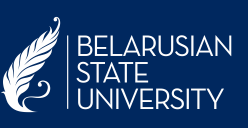
 |
Ïåäàãîãèêà èíôîðìàòèêè |
PEDAGOGY OF COMPUTER SCIENCE |
ISSN 2708-4124 |
|
HEURISTIC AND DIDACTIC CONSTRUCTIONS AS A MEANS OF MASTERING DIGITAL SKILLS FOR THE FUTURE MATH TEACHER E. I. Skafa FULL TEXT: PDF (Rus) Abstract Means of digitalization of modern education include heuristic-didactic constructions in the form of computer programs for the "non-rigid" management of educational activities of students in mathematical disciplines. The article describes the procedure for constructing such structures in the form of heuristic training and corrective simulators. Training future teachers in mathematics to build such simulators and manage them when working with schoolchildren is an important competence that should be formed for students in the conditions of digitalization of education. Key words Heuristic and didactic constructions, teaching mathematics, training and corrective simulators, preparation of the future teacher, digitalization of education. Received: 12/01/2020; accepted for publication: 12/20/2020. For citation: ________________________________________ Skafa E.I. Heuristic and didactic constructions as a means of mastering digital skills for the future math teacher. Electronic scientific and methodological journal “Pedagogy of computer science”. 2021;1. Http://pcs.bsu.by/2021_1/5ru.pdf Content is available under license Creative Commons Attribution-NonCommercial-ShareAlike 4.0 International License. About the authors: E. I. Skafa
References 1. Avdeenko N., Denishcheva L., Krasnyanskaya K., Mikhaylova A., Pinskaya M. Creativity for Everyone: Integrating the 21st Century Skills in Russian Schools. Voprosy obrazovaniya = Educational Studies. Moscow. 2018;4:282-304. DOI: 10.17323/1814-9545-2018-4-282-304. 2. Makarenko A.N., Smyshlyaeva L.G., Minaev N.N., Zamyatina O.M. Digital Horizons in Teacher Education Development. Higher Education in Russia. 2020;6:113-121. (In Russian) 3. Milrud R.P., Koval N.A. Informatioonal and educational technologies in the educational process. The Bulletin of Voronezh State Technical University. 2013;9(5-2):145-149.(In Russian) 4. KosovaY.A., Dyulicheva Y. Y. Experience in Teaching Mathematical Disciplines Using E-learning and Distance Learning Technologies during the COVID-19 Pandemic. Modern Infor-mation Technologies and IT-education. International scientific journal. 2020;16;1:207-223. Avai-lable at: http://sitito.cs.msu.ru/index.php/SITITO/article/view/ 622.(In Russian) 5. Puchkouskaya T.Î. Competences of a teacher in the context of global trends of digital transformation of processes in the education system. Pedagogy of computer science: Electronic scientific and methodological journal. 2020;3. Available at: http://pcs.bsu.by/ 2020_3/4ru.pdf. (In Russian) 6. Skafa E.I. Heuristic design in the learning mathematics.Didactics of mathematics: Problems and Investigations: International Collection of Scientific Works.Issue 43. Donetsk: DonNU, 2016.Pp.21-27.(In Russian) 7. Skafa E.I. Heuristic method to the development of multimedia means of training students in high school. 4nd International Conference: Computerization of Education and E-learning Technologies: Digital Technologies in Education. Krasnoyarsk, 6–9 October 2020; Editor M.V. Noskov. Krasnoyarsk: Siberian Federal University, 2020. Pp.227-231. (In Russian) 8. Redecker C. European Framework for the Digital Competence of Educators: DigCompEdu. Punie, Y. (ed). EUR 28775 EN. Publications Offce of the European Union, Luxembourg, 2017. 95 p. 9. UNESCO ICT Competency Framework for Teachers [Electronic resource]. Available at: https://unesdoc.unesco.org/ark:/48223/pf0000265721 (date of access: 26.08.2020). |